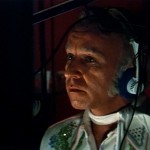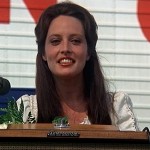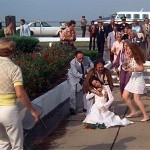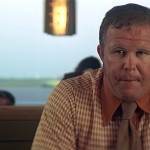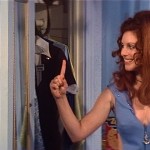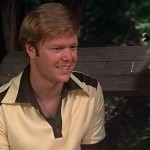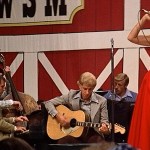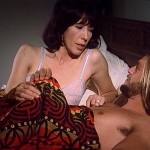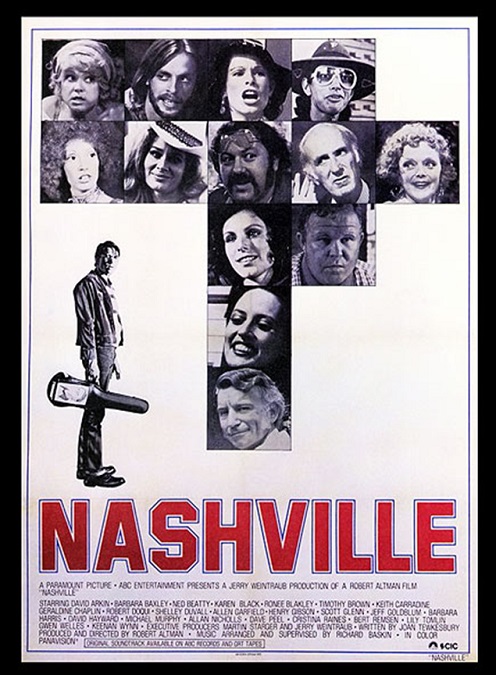
Nashville – 1975
I was only 2 years old in 1975, so I wasn’t aware of the world politics. So today, it is difficult for me to gauge just how serious the political climate was. All that being said, I don’t really understand why this was such a beloved movie. It certainly painted a picture of the Country & Western music subculture in the mid-70s, but beyond that, I can’t see why Nashville has gotten such great reviews.
It felt to me like it was trying too hard to be socially significant and poignant. It was a movie that had a large cast and a lot of stories being told at the same time, though I was only intrigued by a few of them. There was a climax that was never really explained to my satisfaction, so it was difficult for me to feel passionate about it. I’ve never been a huge fan of C&W music, especially from that era, so I was a little bored by that aspect of the film that was supposed to be one of its biggest attractions.
The movie did have several names that I recognized like Ned Beatty, Karen Black, Shelly Duvall, Henry Gibson, Scott Glenn, Jeff Goldblum, and Lily Tomlin, though none of them played a character that was more important or more central to the overall film than any other character. If the film had any lead, I would have to say that it was Ronee Blakley in her first film role. She played the sweetheart of Nashville, country singer, Barbara Jean. She is fragile, both physically and emotionally, and much of the movie’s drama revolves around her.
The film’s climax is the most interesting thing that happened in the film, but even that was only mildly engaging, and I’ll explain why. Throughout the movie, a running political commentary is drilled into the viewer about how the current government of the time needed to be supplanted with a new party called the Replacement Party. A van with loudspeakers affixed to its roof is constantly roaming the city, spouting this new party. The film’s climax takes place at a political rally where many of the characters who aspire to be country stars are ready to perform.
Except that the point is made that almost none of these performers have any interest in supporting the candidate’s politics. They each have their own reasons for performing at the rally. Barbara Jean is cornered into performing in order to salvage her faltering career. Sueleen Gay, played by Gwen Wells, is a talentless singer who just wants to perform on the same stage as Barbara Jean. Haven Hamilton is a star of the Grand Ole Opry, and Barbara Jean’s friend, though he has his own political aspirations.
Anyway, after Barbara Jean sings a few songs, Haven joins her on the stage. Suddenly, a character, who, up until this point, has been so unimportant as to be unnecessary, Kenny Fraiser, played by David Hayward, pulls out a gun and shoots Barbara Jean and Haven, presumably killing her and wounding him. Unfortunately, it is never revealed whether the shot that hit Barbara Jean was fatal or not. The issue is left unresolved.
It was supposed to be tragic, poignant, and dramatic, but unfortunately, it was none of these things to me. Kenny’s motives were never explained. He had obviously come to Nashville with the intent to murder, but why? Was it an act of violence aimed at the music industry, or was the political party the target? Or was there a personal reason why Barbara Jean or Haven Hamilton might have been the target? Another unanswered question. And when it came down to it, there were so many different stories being told, and so little time was given to developing any one character, I just didn’t really care either way.
As a matter of fact, I didn’t really care about any of the characters. Many of them were just plain annoying. For example, Shelly Duvall played Martha, the niece of an old man whose wife was dying in the hospital. Martha dressed weird just to be weird, adding to the already weird and unattractively skinny appearance of the gawky actress. Geraldine Chaplin played Opal, a celebrity-obsessed BBC journalist who is so rude that she, in stereotypical reporter style, barges into any situation in which she might get an interview with a star, as if anyone would drop everything they are doing to answer her ridiculous questions. One of the only characters I actually liked was Bud Hamilton, Haven’s son and lawyer. He seemed like a genuinely nice guy, but once again, he had very little screen time and was vastly unimportant to any of the plots.
I think that if I was more knowledgeable about the politics of the mid-70s, I would have understood more of the film’s social agenda and significance. Maybe the film would have been more palatable if the various stories had more interaction with each other. Sure, the different characters often showed up peripherally in other people’s plots, but not in any important way. For my tastes, the separate tales were just too isolated and underdeveloped to be very impactful.
